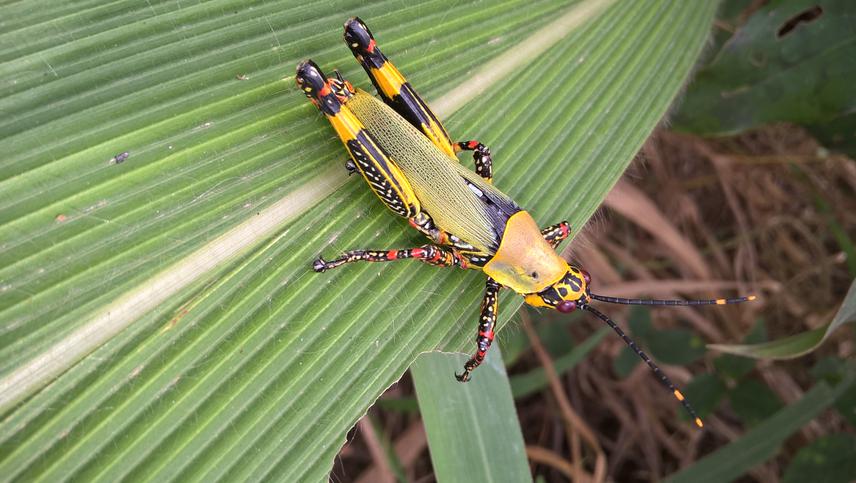Charly Oumarou Ngoute
Evaluation of grasshopper’s species able to help understanding the level of human disturbance of forests, education of local peoples against illegal exploitation of forest biodiversity

Zonocerus variegatus from Zamakoe.
The proposed project is to evaluate the different levels of damage caused by human activities on faunal communities, in three forests ecosystems (Bipindi Lolodorf, Zamakoe, Ongot) with different levels of human activities. In addition, the biodiversity inventory of grasshoppers will be taken as an example to estimate the pressure of deforestation and forest degradation on the associate fauna. Our fieldwork will be made in sixteen months, once every month. Per month, in each village, we will work in three days: first day for the grasshoppers sampling and floristic inventory, second day for evaluation of human damages on the forests, third day for sensitization of local people (via the village chiefs) around the forests against deforestation and about our results.
We will collect grasshoppers with net and by hand for 30 minutes of duration in the forests and in the fallows of each village. Floristic inventory will be to collect dominant and abundant species in the same areas used for grasshoppers sampling. We will evaluate damages (number of felling, road system...) in 1ha forest subunit every month. The sensitization of local people will be against illegal deforestation and climate change but at the end of our study we will also provide the recommendations to some other parties about the grasshoppers able to help understanding the level of forests degradation. Grasshoppers and plant species will be identified scientifically at the University of Yaounde I.
The results of this work will be used to establish a long-term monitoring of forests via the recommendations provided to governmental Departments (MINEFOF, MINADER, MINRESI, MINESUP), to better measure the intensity of their actions against illegal exploitation, to identify the priority forest areas for granting government funding to increase the standards living of populations for the reduction of their dependency on forest resources; These data will also be indispensable to develop other research projects on environmental conservation in Cameroon and will allow us to gather an important dataset to complete our PhD research work at the University of Yaounde I.